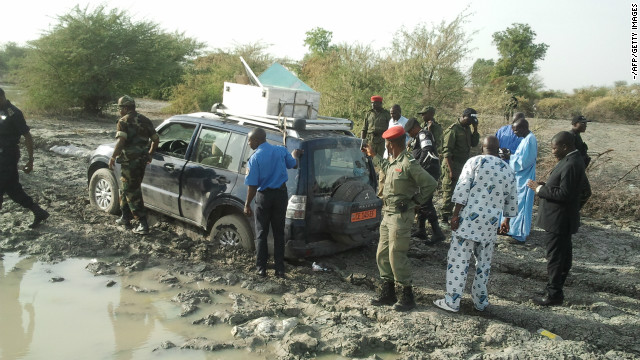KHARTOUM, Sudan – For the first time since 2001, government doctors were judicially ordered to amputate a man’s right hand and left foot as punishment for the crime he was convicted of.

30-year-old Adam Al-Muthna was convicted of armed robbery under article 167 of the 1991 Sudanese Penal Code. Under the same law, the penalty for such an offense is cross amputation. So, on February 14 Muthna was brought to the Sudanese Ministry of Interior’s Al Rebat Hospital and had his limbs cut off.
The Physicians for Human Rights (PHR), along with the African Centre for Justice and Peace Studies (ACJPS), Human Rights Watch, and REDRESS, cried that the amputation was against the credo of the medical profession. “Cross amputation is a form of state-sponsored torture,” said Dr. Vincent Iacopino, senior medical advisor at Physicians for Human Rights. “The complicity of medical personnel in such practices represents a gross contravention of the UN Principles of Medical Ethics for health personnel, particularly medical doctors who engage, actively or passively, in acts of torture or other cruel, inhuman or degrading treatment or punishment.”
According to the executive director of ACJPS, Osman Hummaida, “amputations violate the absolute prohibition of torture and cruel, inhuman or degrading treatment or punishment under international law and have no place in any criminal justice system.”
Thus, hoping to convince the Sudanese government to reform its penal laws, the PHR, ACJPS, Human Rights Watch and Redress came together to demand not only Sudan, but international actors as well, to condemn the practice immediately.
“Authorities should immediately stop imposing such cruel and inhuman punishments, and bring laws in line with Sudan’s human rights obligations,” said Daniel Bekele, Africa director at Human Rights Watch. “They should stop ordering amputations, stoning, flogging and all other forms of corporal punishment that violate basic human rights.”
Dr. Lutz Oette, Counsel at REDRESS added that corporal punishments are “frequently used as an instrument of repression against those who do not conform to the State’s conception of moral order.” She said that this was contrary to the ruling in Doebbler v Sudan, concerning the use of flogging as a punishment in Sudan. In that case, the African Commission on Human and Peoples’ Rights ruled that: “there is no right for the government of a country to apply physical violence to individuals for offences. Such a right would be tantamount to sanctioning State sponsored torture contrary to article 5 of the African Charter.”
In 1996, Sudan signed, but has yet to ratify, the UN Convention against Torture and Other Cruel, Inhuman or Degrading Treatment or Punishment.
For further information, please see:
AFP – Sudan man’s foot, hand ‘amputated’ by court order – 28 February 2013
France Diplomatie – Sudan – Court ordered amputation – 28 February 2013
Radio Dabanga – Sudanese Doctors Union condemn reintroduction of cutting hand and foot – 28 February 2013
UPI – Rights groups blast Sudan amputation – 28 February 2013
All Africa – Sudan Doctors Carry Out Court Ordered Amputation Sentence – 27 February 2013
Human Rights Watch – Sudan: Doctors Perform Amputations for Courts – 27 February 2013
Reuters – Sudan cuts off hand, foot of man convicted of robbery: activists – 27 February 2013

